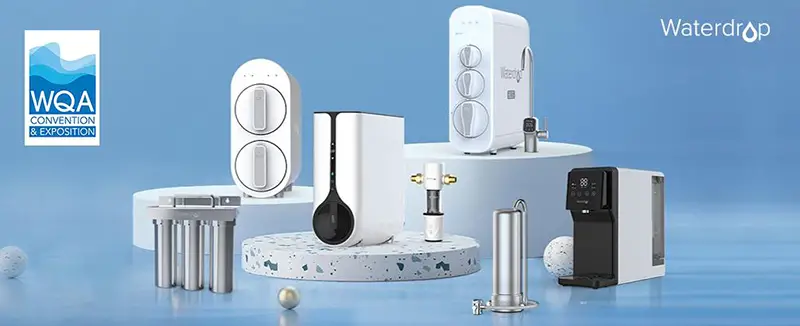Click here to get this post in PDF
For a brief moment, human life is inextricably linked to water, and water is the most essential element for survival. All chemical reactions in the human body occur in medium water, and the human body performs a wide range of physiological functions. Nutrients cannot be absorbed, the right parts of the body are deprived of oxygen, and without water, nutrients and hormones cannot be transported. Action site: If waste cannot be removed, the person’s metabolism will stop, and he or she will die.
If you want to reduce the amount of chlorine in your water, an under-sink water filter is the perfect solution. The under-sink water filter is the ideal solution if you want your drinking water to be chlorine-free or have lower chlorine concentrations.
What Is Under Sink Water Filter?
A water filter installed under your sink removes contaminants from your drinking water before it enters your home. Under-sink water filters are placed beneath the kitchen sink, where they have easy access to the cold-water supply lines. Any homeowner or business owner can easily install these devices, and with proper maintenance, they will last for years.
There are various forms of under-sink water filters, but they all perform the same function: They filter contaminants out of your drinking water supply line that could otherwise enter your body through ingestion or other skin or eye contact. Under-Sink filters range in complexity from simple faucet attachments to complex multi-stage systems. To remove various contaminants from your drinking water supply line, they employ a variety of materials. They filter the water before it enters your home or place of work and comes into contact with the bodies of you and your family or employees.
Different Types of Under Sink Water Filter
Under-sink water filters come in many different forms, all of which have their own factors and advantages. The following are a few of the most popular:
Carbon Block Filter: This filter removes chlorine, bad taste, and odor from water using activated carbon granules. Heavy metals like lead and mercury are also removed from the water supply. Carbon block filters are excellent for removing chlorine from tap water, but they do not reduce fluoride or other heavy metals. This is due to the fact that they require more filter media contact time than carbon block filters can provide.
Reverse Osmosis (RO) Filters: Reverse osmosis filters divide tap water into two streams using two semi-permeable membranes: wastewater and purified drinking water, using a pressure-driven membrane separation process (RO). RO filters can remove up to 90% of dissolved solids from your tap water, including salt, calcium, magnesium, nitrates, and other contaminants. They can’t, however, get rid of VOCs (Volatile Organic Compounds) like benzene. Check here to learn more about Waterdrop under sink reverse osmosis system.
What Are the Benefits of Under Sink Water Filter?
Takes up less space – Under sink water filter takes up less space in your kitchen than other types of water filters. It can be placed under the kitchen sink or in the laundry room.
Easy to install – The installation of an under-sink water filter is simple and straightforward. This is because it includes all of the required parts and accessories for installation. During this process, you will not require any professional assistance.
Flexible Usage – Because there are so many different types and sizes of under sink water filters, you can find one that perfectly meets your needs. You can even select a system that best meets your requirements, like removing chlorine from the water supply or using purifying ice cubes to make tea or coffee with minimal effort.
Cost-effective – Under sink water filters provide excellent value for money because they are inexpensive and perform better than other types of filters currently on the market.
Conclusion
The majority of people do not consider their water filter until they have a problem with the quality of their water. However, before purchasing a filter, you should think about your options. I hope this blog has been of some assistance in determining which water filter is best for you.
You may also like: Why You Should Consider an Air Filter for Your Office

